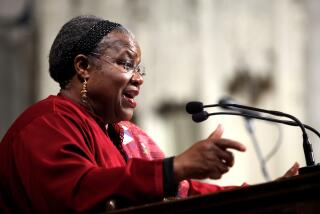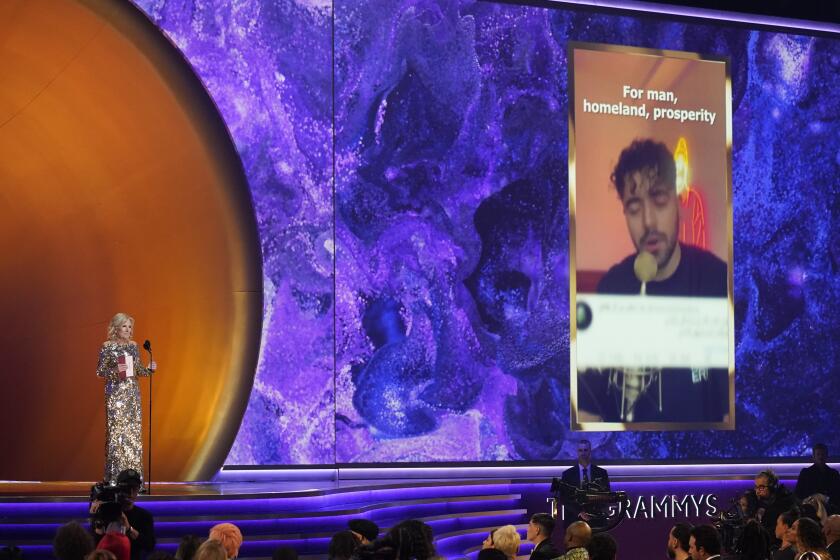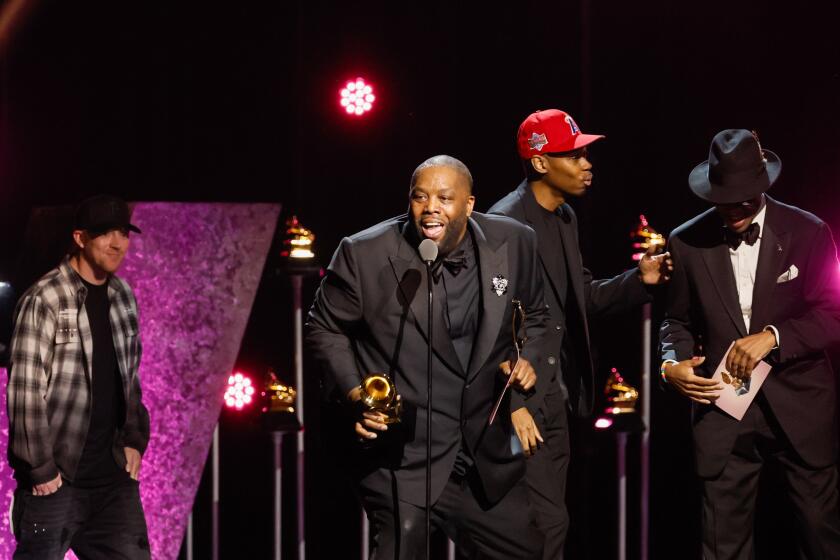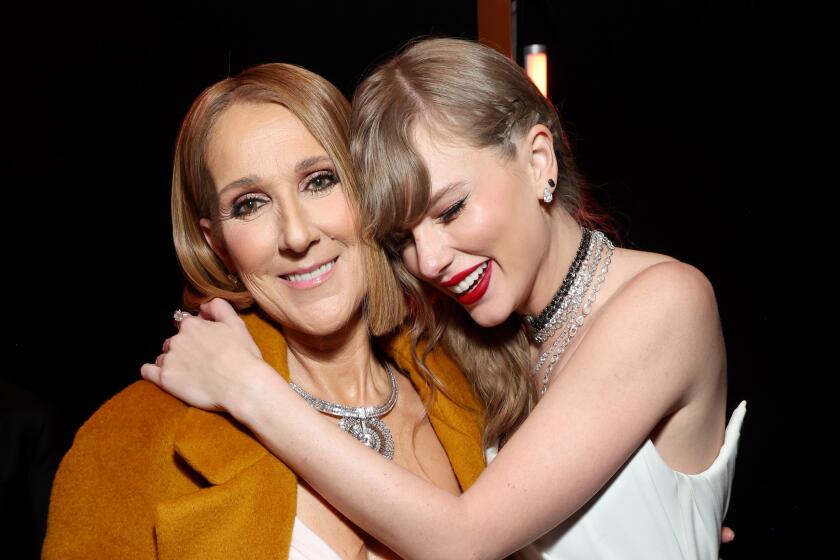Posthumous Nomination
Paul Werth’s name appeared in the Hollywood Reporter twice on Jan. 8. It was on the obituary page, where the trade magazine listed his credits as a radio and concert producer. And there it was again, 31 pages later, toward the end of the long list of Grammy nominees.
For Werth’s daughter, Michelle McKee of Santa Clarita, the last few weeks have been the definition of bittersweet.
“This would’ve probably been the culmination of [his career],” McKee said. “He was very proud of this project, and this nomination would’ve been the highlight.”
Werth, a longtime Valley resident, was the writer, director and producer of the four-hour audio portrait “Harry S. Truman: A Journey to Independence.” Werth knew his project was eligible for a Grammy when he died of complications from lung cancer on Dec. 20, less than three weeks before the nominations were announced. He was 69.
McKee’s joy in her father’s recognition, however, has been tempered by the policy of the National Academy of Recording Arts and Sciences. In the category of best spoken-word or nonmusical album, it’s the performers who get the award. Officially, the nominees for “Journey to Independence” are Lauren Bacall, Martin Landau, Jack Lemmon and Gregory Peck, who narrated the Truman tribute.
When McKee talked to the NARAS office, she was told she would get no nomination certificate for her father, nor would she get tickets to the awards ceremony in New York Feb. 26. “I thought for sure he’d at least get tickets,” she said.
*
Diane Theriot, vice president of awards for NARAS, said the narrators have always gotten the spoken-word Grammy. “The only time it would be different is if the entire album was by different people who just spoke brief parts of it--in other words, if they weren’t on the entire recording. Then it would probably go to the producer of the album,” she said.
That’s not the case here, even if “Journey to Independence” should win the Grammy. It’s the reading performance being honored, Theriot said. “We’re not giving out an award for book writing.”
But unlike some of the competition--which includes Garrison Keillor’s reading of “The Adventures of Huckleberry Finn” and Hillary Rodham Clinton’s reading of her book “It Takes a Village”--Werth’s work was created specifically for audiocassette.
It was commissioned by the Truman Library in Independence, Mo., and is distributed to bookstores by Soundelux Audio, based in Novato, Calif.
Michael Fern, Soundelux’s director of acquisitions, understands the frustration felt by Werth’s family and friends. Unlike popular music categories, there are no Grammy awards for writing or producing spoken-word recordings and thus no way to honor the talents of someone like Werth.
“Really, the majority of the project is creative writing and editing,” said Fern, who dealt with Werth on a similar audio biography of John F. Kennedy that Werth was working on at the time of his death.
Werth’s close friend music consultant Rick Penner said he appreciated that Werth was at least mentioned in the nominations as the writer. “But if, in fact, that documentary should win the award, I think it would be a failure on the academy’s part not to recognize Paul’s work . . . as the person who put it all together. There’s no show without him.”
Penner, who knew Werth for about 15 years, described him as an “Oscar Madison” type, referring to the less tidy half of “The Odd Couple.” He loved baseball, animals and took great joy in his 6-year-old granddaughter, Megan McKee.
Werth moved from Brooklyn, N.Y., to Los Angeles about the same time the Dodgers did, in 1957. “A lot of his best times were at the ballgame,” Penner said. “He’d have a beer in one hand, a hot dog in the other hand, popcorn in his lap, a cigar in his mouth . . . and then he’d say, ‘Could you hold this popcorn?’ Then he’d stand up and yell, ‘Hey! Peanuts!’ ”
In addition to being a history buff, the self-taught Werth was well-versed in music, especially from the Big Band era. He’d been a concert producer in the ‘50s and later hosted radio shows, including “Werth Listening To” on KNOB-AM. In recent years he produced syndicated radio tributes to singers such as Nat “King” Cole, Perry Como and Bing Crosby. He also produced historical films for the Hollywood Bowl and the Autry Museum of Western Heritage.
“He was an outstanding writer and producer of radio product,” said Larry Vanderveen, who runs a TV and radio production firm in North Hollywood and worked with Werth on the tribute programs. “Paul was able to feel how sound works to create a beautiful tapestry for the listener.”
*
Werth also immersed himself in his work, even after he learned that he’d developed lung cancer. McKee said Werth wouldn’t stop working, even after he had a lung removed in September and landed back in the hospital three times with pneumonia.
“Going through his home after he passed, we must have filled up 40 or 50 boxes just with books alone,” said Penner. “His life was books and music.”
Penner said that Werth would have been pleased that “Journey to Independence” earned a Grammy nod, even if it doesn’t have his name on it.
“We joke that when he found out, he probably lit up a cigar in the smoking section of heaven.”
More to Read
The biggest entertainment stories
Get our big stories about Hollywood, film, television, music, arts, culture and more right in your inbox as soon as they publish.
You may occasionally receive promotional content from the Los Angeles Times.






